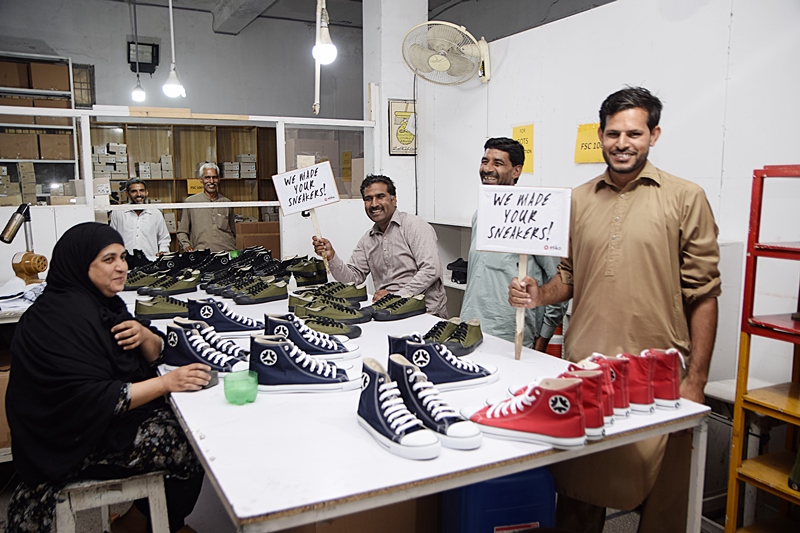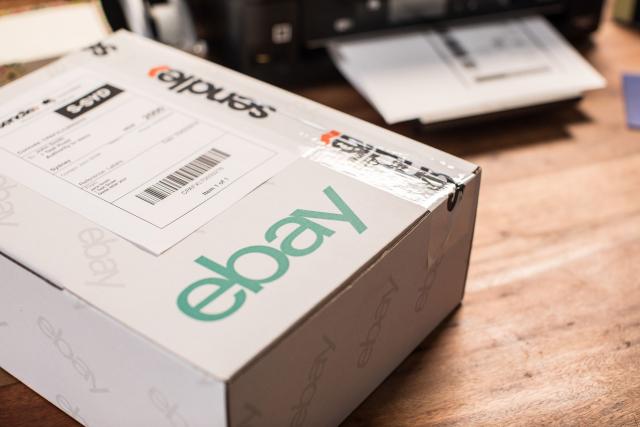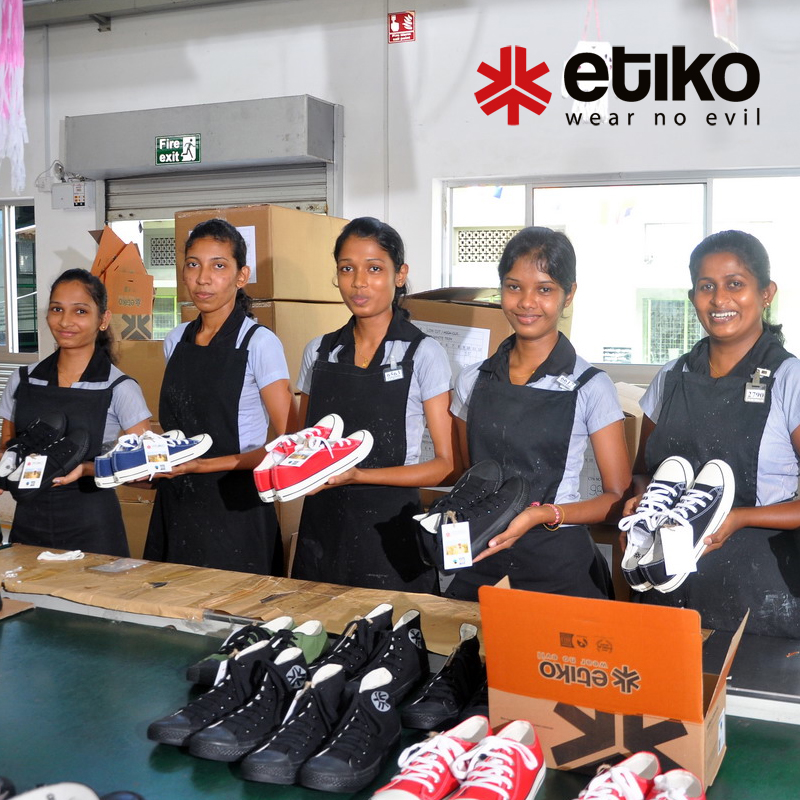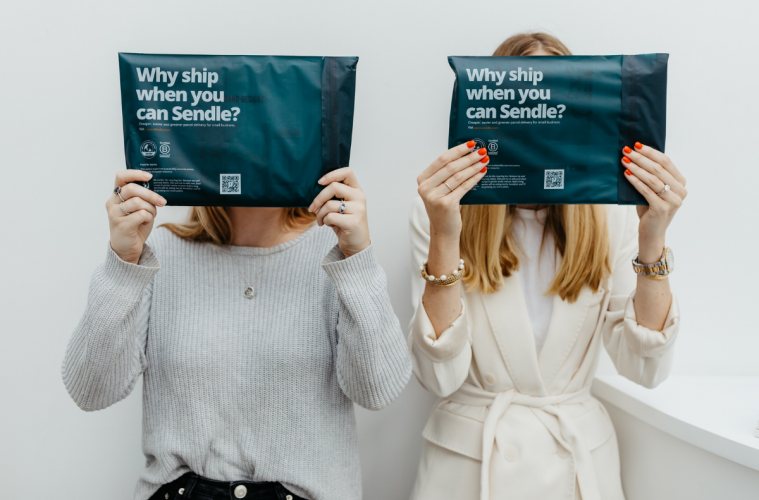![]() This article was written by Katrina Fox for WorldFirst. She is the author of Vegan Ventures: Start and Grow an Ethical Business.
This article was written by Katrina Fox for WorldFirst. She is the author of Vegan Ventures: Start and Grow an Ethical Business.
More consumers are seeking out brands that are doing the right thing by people, animals and the planet. At the same time, COVID-19 and other market conditions have resulted in currency fluctuations and major disruption to supply chains. This leaves you to navigate the precarious situation of managing customer expectations of fast, quality service and strong ethical standards.
Here’s how you can ensure your business stacks up on the ethical front and focusses on corporate social responsibility.
Check your suppliers’ track records on human rights, animal exploitation and sustainability
In 2013, a building in Bangladesh housing several clothing factories that made garments for high-profile western fashion brands collapsed due to structural faults. More than 1,000 workers, mostly women and children, died, with 2,500 seriously injured.
The Rana Plaza disaster was attributed not only to the factory owner but also retailers for not being diligent enough in monitoring their suppliers’ safety standards, working conditions and wages.
To avoid a scenario like this, it pays to check how ethical your suppliers are.
Here’s what to look out for:
Third-party certifications

Australian vegan, organic, eco-friendly apparel and footwear company Etiko – launched in 2005 – manufactures its products in India, Sri Lanka and Pakistan. From the start, the business was committed to helping tackle inequality and poverty and to empower local communities. It was the first brand in the southern hemisphere to become certified with Fairtrade.
“Etiko wants no part in the exploitation of people, animals or the planet,” says founder Nick Savaidis. “By joining Fairtrade, as a small business, we could rely on an already-established supply chain regularly audited by a third party with a proven history of positive impact. This is the most reliable method we could find to ensure staff and farmers receive a fair wage for their labour and their produce.”
Etiko is also a B-Corp and registered with Social Traders to demonstrate its positive impact on the world.
All three certification schemes help the company to stand out from the crowd. “Etiko helps customers live their values,” says Nick. “We also like to think we’ve had an impact on other fashion brands by demonstrating a different and better way of running a business.”
Shipping and packaging

According to the Australian Packaging Covenant Organisation (APCO), only 18% of all plastic packaging in the country is recovered for future use. The rest goes to landfill.
So, consider the ethical credentials of your packaging supplier to ensure that you’re using the most planet-friendly option available to you.
Great Wrap in Melbourne, for example, has developed a home compostable pallet wrap and cling wrap that’s made partially from food waste.
Meanwhile Source Green Packaging recently launched the world’s first global B2B marketplace for sourcing forever plastic-free products and materials.
Parcel delivery itself is a contributor to climate change. It’s estimated that the shipping and logistics industry is responsible for around 3% of global greenhouse gas emissions.
Since launching in 2014, Australian courier service Sendle’s mission is helping small businesses thrive with simple, reliable and affordable shipping while being as eco-friendly as possible.
So far the company has offset 21 billion kilometres of carbon – the equivalent to driving a one tonne truck to Mars and back 188 times.
“As a company and a group of purpose-driven individuals, we believe that businesses have to do their part to make a positive impact on the planet,” says Paige Gumbley, senior partnerships marketing manager.
Delivery and customer service
If your supplier says they’ll deliver your packages within a certain time frame, make sure you hold them accountable if they fail to do this. Your customers trust you to keep your promises so you need to ensure your suppliers share these values.
If there are unavoidable delays, your suppliers need to communicate with you regularly so you can keep your customers up-to-date.
Sendle’s price guarantee promises that it will always be cheaper than standard Parcel Post and when sometimes things don’t quite go to plan, a cover policy for lost or damaged parcels is available.
“We have a dedicated team that works around the clock to ensure our prices are kept low for small businesses and parcels are getting delivered safely to their destinations,” says Paige.
International payment providers
Currency fluctuations can have a huge impact on your business, so finding the right international payment provider that shares your commitment to doing good in the world is important.
WorldFirst was created 17 years ago by two British entrepreneurs who wanted to create financial inclusivity by providing affordable international money transfer for all.
In 2019 the company was bought by Ant Group, an affiliate of popular Chinese tech giant Alibaba, which has philanthropy at the core of its business model and values ethical practices highly. This year’s 11.11 festival was centred around sustainability, with GMV no longer the yardstick for achievement but sustainability and inclusivity targets.
The ability to transfer money quickly, securely and affordably is essential for businesses with a global supply chain, especially those dealing with countries that typically lack a strong banking infrastructure.
UK-based firm Bantam Materials International works with coastal communities in developing countries by supporting bottle collectors, collection centres and local recyclers to stop plastics entering the oceans. To date it’s paid for the recycling of over 10 billion bottles.
Bantam sends around USD $100,000 a day to these communities so it requires a secure, robust money transfer provider. “The speed and reliability of these payments is critical, especially with credit interest rates as high as 72% in some communities,” explains UK director Raffi Schieir. “By utilising WorldFirst, we’re able to facilitate a large volume of commerce and trade into developing countries at excellent rates, so that we can reliably provide the cashflow needed to pay the bottle collector communities we work with.”
Factor in market conditions
Running your business ethically is laudable, but you need to consider potential trade-offs and how you’ll manage them. Here are some of the most common issues:
Costs

Going above and beyond in your ethical standards does come at a price. Etiko, for example, pays around 200% more to manufacture its organic canvas sneakers than any other major brand.
“To make anything ethically costs more money than it does to exploit someone,” says Nick. It also costs us more money to use eco-friendly packaging than it does to use plastic. It costs more to use vegan glues than animal-based glues, and our organic cotton is more expensive than regular cotton.”
Yet, the company is still profitable. “Of course, our profit margins are slimmer than those of non-ethical brands, but it’s a sacrifice we’re prepared to make to help our customers access ethical products at a competitive price.”
Sendle has a similar perspective. This year it launched a Pandemic Relief Package with discounts of up to 30%.
“Our business model is all about balancing profit with purpose,” says Paige. “Via our diverse network of courier partners, we’re able to capture the discounts big businesses enjoy and pass them on to small businesses.”
COVID-19
COVID has posed major challenges for many global businesses over the past couple of years. Along with manufacturing and shipping delays, the cost of freight has skyrocketed.
“Explosion in freight costs over the last year has caused havoc with our finances,” admits Nick from Etiko. “The cost of freight for a shipping container has increased by 400%, which is unprecedented.”
Nevertheless, the company has stayed on mission and continues to support its supply chains as much as possible by maintaining contracts, when many other brands cancelled their orders. “We also paid for our products upfront to ensure factories could maintain commitments to their workforce and offered pre-order sales to our customers, so supply chain staff had adequate work during COVID,” says Nick.
Free trade agreements
Free trade agreements can be beneficial in some ways, such as lowering your import costs, but they can also put you at a disadvantage if they change.
Scenarios like Brexit, for example, have led to higher costs for companies in the UK that import raw ingredients, materials or finished products from Europe.
The Trans Pacific Partnership is one to watch for Australian businesses after the US left the pact in 2017, while in September 2021 China applied to join it.
Make sure you stay up to date with any implications these changes may have on your business. Government agencies such as Austrade provide support and education programs on export services, as well as information on export grants. You may also benefit from joining organisations such as the Export Council of Australia, which provides regular updates and latest news on international trade.
Do ethical global business like a local with WorldFirst
WorldFirst has helped more than 250,000 customers send more than $140B around the globe since 2004. Global sellers and exporters can access local accounts in GBP, EUR USD and more to collect overseas funds faster and cheaper in local currency. Importers can enjoy market-leading exchange rates that can lower their international supplier costs.



